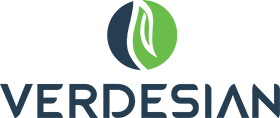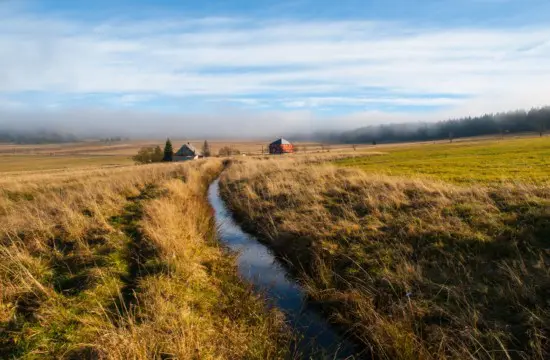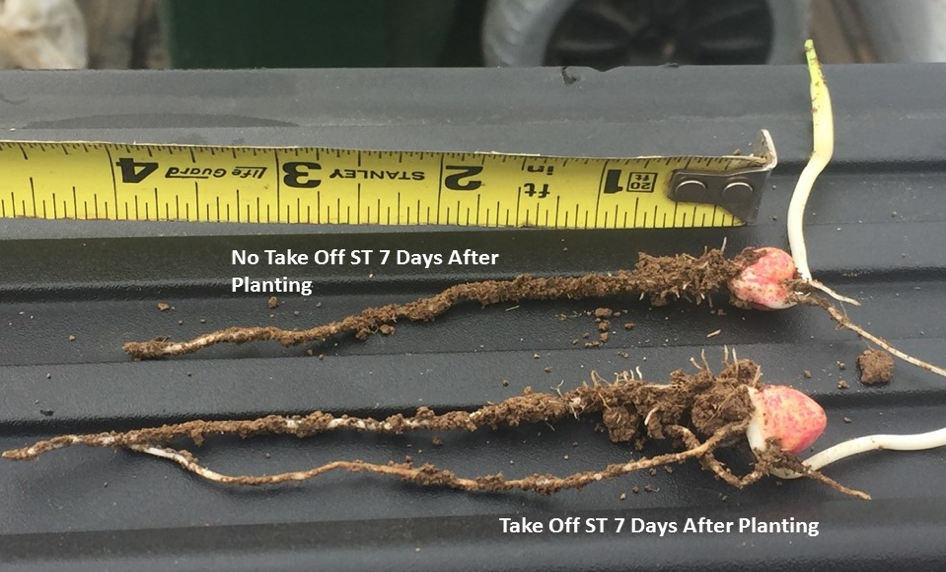Maintaining and protecting the quality of Iowa’s water supply remains a top priority for area farmers, the fertilizer industry, agricultural retailers and consumers alike. And in a world of $3.50 corn, sustainability needs to be meaningful and profitable for farmers.
To help their Iowa farmer customers, Linn Co-op Oil Company has focused on elevating the sustainable ideas of industry partners who are committed to reducing nutrient runoff. These meetings help Linn Co-op’s customers connect and learn how to implement best practices through programs like Land O’Lakes SUSTAIN.
Dave Schwartz is an Iowa farmer, certified crop adviser and member of the Iowa Agricultural Water Alliance business council, but we know him at Verdesian as the executive vice president of sales. He presented at Linn Co-op’s recent Update and Outlook on Water Quality & Soil Health meeting, saying that the Des Moines Water Works lawsuit proves the state’s water quality situation isn’t going away. He believes that continuous improvement can be achieved by using tools that are proven on-farm, such as targeted voluntary conservation measures in conjunction with research, development and demonstration of new approaches.
“This far exceeds the individual farmer level,” says Schwartz. “Agriculture is a tremendous industry with many resources already in place to improve this situation. It is time we all take responsible action.”
Schwartz says he sees some changes we can all implement easily – now – while others will take decades. In the short term, farmer-led efforts to improve water quality in Iowa include three tangible steps to take toward reducing nutrient runoff:
- Limiting applications on fields where soil tests indicate that phosphorus (P) exceeds the upper boundaries for optimum levels for corn and soybeans. This problem becomes common in fields where swine, poultry and dairy manures have been applied for years. Many of these fields are over the limit, but still get manure because they are close to barns.
- Planting cover crops, which are good at scavenging extra P left in the soil after a growing season. This is a practice that can easily be adopted late in the summer, and does a good job reducing soil erosion, the number one way phosphorus moves offsite from a field.
- Reducing tillage to keep soils more compact, and less vulnerable to water erosion.
(Source: Land O’Lakes SUSTAIN)
In the long term, Schwartz recommends experimenting with edge-of-field practices that involve drainage and tile management. This includes re-establishing wetlands and constructing bioreactors, buffers and terraces.
“Filter strips along water sources really help remove nitrogen and phosphorus,” explains Schwartz.
A 2016 survey by the Iowa Farm Bureau indicates that 84 percent of its membership is actively applying conservation practices, 75 percent are applying conservation practices with zero cost-share assistance, and 76 percent are interested in engaging more conservation practices over the next five years.
No single practice will meet the 45 percent reduction goal established by the Iowa Nutrient Reduction Strategy. At the current rate of adoption and investment, Schwartz predicts that impact will take decades at best.
Forums like the one sponsored by Linn Co-op leverage the leadership of the industry and position companies like Land O’ Lakes, Verdesian Life Sciences and WinField United Suppliers to accelerate change.
“This is a monumental task, and we are heavily invested in its success,” Schwartz says.


